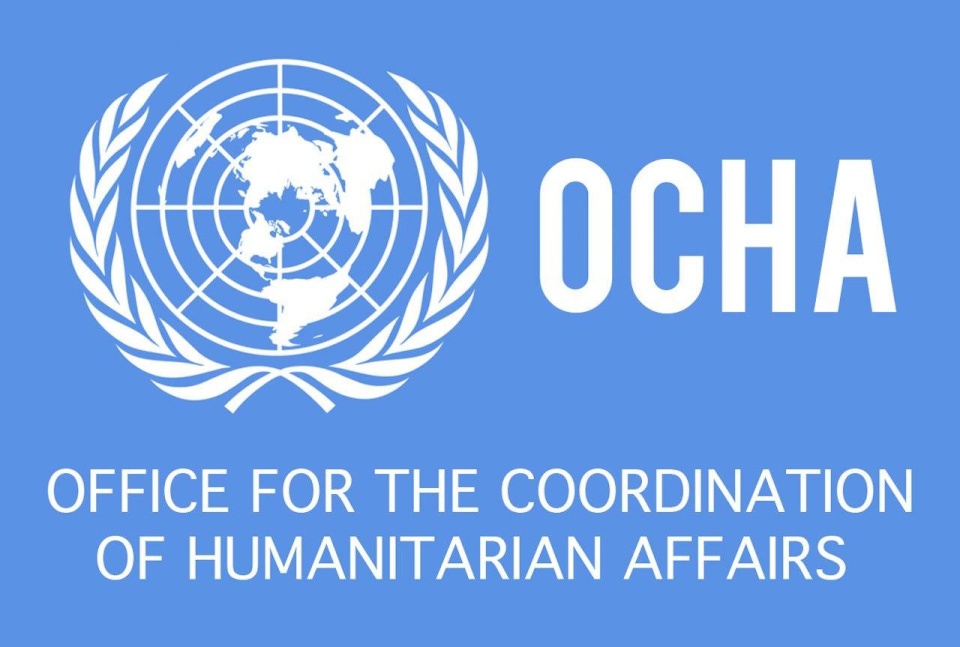
OCHA: The Israeli Attack on Gaza City Exacerbates the Humanitarian Crisis
SadaNews - The Office for the Coordination of Humanitarian Affairs (OCHA) stated that "the Israeli airstrikes on Gaza City over the past week have been particularly intense, including on displacement tents, residential buildings, and public infrastructure, resulting in a large number of casualties."
OCHA said in its latest update on the situation in the Gaza Strip on Thursday that "ground operations, bombardments, and evacuation orders continue to drive additional waves of displacement from the city."
The office reported from its protection partners that there has been a significant disruption in communication channels throughout northern Gaza, hindering efforts to verify information and assess the severity of the situation for civilians who remain in the area.
In this context, the United Nations Office of Human Rights reported that at least 2,340 people, mostly youths and boys, have been killed while seeking assistance since Israeli forces established "military-style supply sites in the Gaza Strip in late May."
With the continued closure of the "Zikim crossing" in the northern Gaza Strip since September 12, the suspension of goods movement from Jordan, and the closure of all Gaza crossings on September 23 and 24 due to Jewish holidays, the Office for the Coordination of Humanitarian Affairs reported that the supply lines to the Gaza Strip, especially to Gaza City that is facing famine, are unpredictable.
The office stated that the ongoing bombardment, evacuation orders, and limited availability of essential supplies threaten the continued operation of life-saving services in Gaza City, including ambulances, health facilities, nutrition services, and community kitchens.
Four hospitals in northern Gaza have been forced to close since the beginning of the month, bringing the total number of operational hospitals in Gaza to only 14, including eight in Gaza City, three in Deir al-Balah, and three in Khan Younis, none of which are operating at full capacity.
OCHA emphasized that with the majority of Gaza's population already displaced several times, the most vulnerable groups, especially children and the elderly, are bearing the brunt of the hardship, including the risk of dehydration during the journey.
The office quoted the "Shelter Cluster" as saying that conditions in the south are concerning, with families crowded into temporary tents along the beach, in overcrowded schools, or sleeping in the open or amidst the rubble of destroyed houses.
It asserted that the pressure on services exceeds their capacity and cannot meet the needs of those already present, let alone newcomers. It noted that the majority of internally displaced persons arrive without tents, which can cost around a thousand dollars in the market — far beyond the means of most families.
According to OCHA, funding for humanitarian operations remains limited, as member states have so far disbursed approximately 1.06 billion dollars of the 4 billion dollars required under the urgent appeal for 2025 for the occupied Palestinian territory to meet the most pressing humanitarian needs of three million people in Gaza and the West Bank, including East Jerusalem.

Naim Qassem: Diplomatic Path Has Failed and We Adhere to Weapons

Spain Will Cooperate.. White House: The Regime in Iran Is Being 'Crushed' and There Are No...

Why Has China Not Actively Supported Its Ally Iran?

Israel Talks About Coordination Between Hezbollah and Iran to Carry Out Attacks and Fears...

Fears in the Pentagon: Rapid Consumption of Advanced US Munitions in the War on Iran

Israeli Army Bombs Huge Military Complex in Tehran

Israeli Estimates: Why is Iran Focusing Its Strikes on the Gulf?

